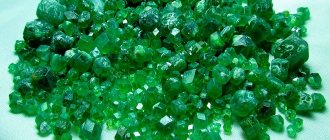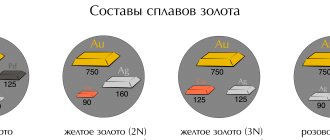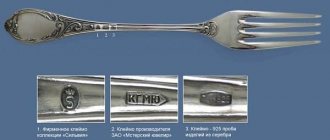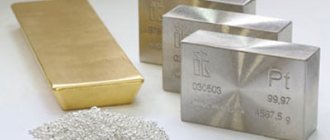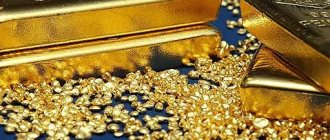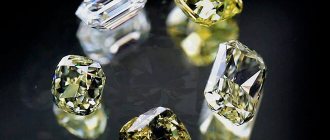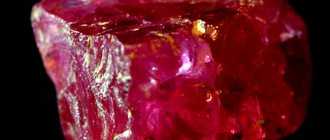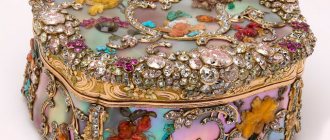Article 191 of the Criminal Code of the Russian Federation establishes punishment for criminal trafficking in expensive metals and rare gemstones.
The extraction and sale of especially valuable natural resources is in the area of state interests. Income from such operations is a guarantee of economic stability and one of the main sources of budget formation. From them the State Fund and the gold and foreign exchange reserves (GER) of Russia are replenished. Any unauthorized attempts to dispose of these resources are prosecuted by law. Multi-channel free hotline Legal advice on criminal law. Every day from 9.00 to 21.00
Moscow and region: +7 (495) 662-44-36
St. Petersburg: +7 (812) 449-43-40
Article 191 of the Criminal Code of the Russian Federation (illegal trafficking in precious metals, natural precious stones or pearls)
The extraction of valuable minerals has not always been the prerogative of power structures. Back at the beginning of the 20th century, anyone could produce and sell yellow metal on their own. It was enough to simply pay taxes on the land used and on profits.
Now this practice is prohibited. However, in the future it is planned to allow private individuals to produce the precious metal and hand it over to the state. The draft law “on the free bringing of gold” is already under development.
In the meantime, the extraction of valuable mineral resources, including gold mining, their processing, sorting, use, geological study and exploration work are the responsibility of government agencies of the Russian Federation.
Legal relations in this area are regulated by federal normative legal acts (NLA) and NLA of the subjects of the Federation (republics, territories, regions, districts, cities of federal significance).
They establish the procedure for production and certification, conditions for ensuring safety, regulations for accounting and reporting, conditions for transportation and importation of these values.
Legal liability - administrative (CAO 19.14) and criminal law (Criminal Code 191) - is provided for illegal actions related to the creation, modification, termination of rights to expensive natural elements.
The Code of Administrative Offenses (COAO) is used if the amount of damage is not sufficient to initiate criminal prosecution.
A monetary penalty is used as a punitive measure. The budget will have to be replenished with an amount from three thousand to fifty, depending on the status of the subject. In all other situations, more serious consequences will occur. The person is charged with violating the criminal law and will be forced to suffer significant punishment, including a long prison sentence. Part 1 of Art. 191 establishes punishment for illegal trafficking of precious metals and especially valuable minerals of inorganic origin, committed on a large scale.
This act will be punished by serving forced labor or being sent to one of the institutions of the penitentiary system. The duration will be no more than 60 months.
As an additional measure, prescribed simultaneously with isolation from society, a person may be subject to financial punishment. Its amount will depend on official earnings or income for a certain period (no more than three years). Or the fine will be a fixed amount (up to half a million rubles).
Part two is devoted to the same offense, only committed by several persons united by a common intent, or by an organized criminal group. Such an act poses a great danger to society and aggravates the punishment.
Violators will be subject to one of the following sanctions:
- Forced labor in places determined by the penal system. Can last up to 5 years.
- Deprivation of liberty. The term of imprisonment can be up to 7 years.
Simultaneously with the placement of the attacker in a penitentiary institution, he may be required to compensate for the damage caused to the state.
You will have to pay up to 1 million RUB to the treasury or the amount of salary or income received from other sources for a period of two to 60 months. Confiscated assets become the property of gold and foreign exchange reserves or other specialized funds.
In the last decade, there has been a gradual decriminalization of the dispositional part of Article 191. If the old editions of the code provided for liability for shadow trafficking in jewelry in any amount, now parties whose value exceeded 1,000,000 RUB fall under criminal jurisdiction.
Judicial practice with examples
Judicial practice under this article is not extensive, but there are various cases of illegal trafficking in precious stones and metals.
Examples of court decisions:
- Citizen U. filed a statement with the police against citizen M, who sold him 15 g of gold. It turned out that it was illegally obtained, which U. did not know about. A case was opened against M., as well as against U., who got off with a fine. M. was prosecuted. Several grams of illegally mined gold were found at his home. All material was confiscated.
- Citizen P. filed a lawsuit against citizen V., who sold her a diamond ring for 50 thousand rubles. Later, the jeweler found out that it was not a diamond, but cubic zirconia, which was inserted into the ring as a replacement. V. was accused of fraud, but during a search of his apartment, several grams of illegally stored gold, which he had mined himself, were found. The punishment for illegal gold mining was severe.
- Citizen G. filed a lawsuit against citizen N. He offered him to buy raw pearls at a favorable price. G. learned that N. had illegally obtained the material and stated that he did not want to be held responsible. The court ruled against N. He worked with illegal miners of precious metals and stones. He pointed to his accomplices, which was regarded as a mitigating circumstance. N. received a fine and forced labor, his accomplices were arrested.
What decisions does the court most often make?
More often, guilty decisions are made under the article. It is not difficult to prove the fact of illegal storage or transportation of precious metals and stones. Criminals are either accused by buyers or find themselves in a situation that betrays them. More often, criminals are fined; forced labor is extremely rare. In case of a crime, criminal liability is also common. Criminals are often sentenced to 1-3 years in prison.
Commentary to Art. 191 of the Criminal Code of the Russian Federation
By organizing illegal trafficking of precious metals, natural stones or pearls, a person contributes to their depreciation. In turn, this leads to a decrease in their quotations on the official exchange.
Particularly rare and expensive resources become the subject of crime. Their exhaustive list is given in Federal Law No. 41. First of all, they include noble metals. In addition to gold and silver, six more such elements are known: platinum, palladium, iridium, rhodium, ruthenium and osmium.
They may be in the form:
- nuggets;
- refined (purified) metal;
- blanks subjected to primary metal processing (cast, stamped, forged), subsequently used to create finished products;
- chemical compounds in different proportions (calaverite, krennerite, sylvanite);
- stamped ingots complying with GOST;
- washed sediment;
- minerals in the form of ore, sand, materials from technogenic deposits;
- intermediate products of metallurgical and other production;
- products for industrial and technical purposes (board contacts, radio components, laboratory flasks, rods and wire of various cross-section profiles and others);
- coins taken out of circulation.
They should also include returnable waste obtained during the technological process during factory production (shavings, pieces, sawdust, chips, saw cuts), which can be refined.
As the second group of objects, the law specifies diamonds, emeralds, sapphires, alexandrites, rubies and natural pearls, measured in carats. That is, gemstone raw materials of group A of the first order. Additionally, the legislator included in this list amber formations recognized by a special commission as unique.
In order for these elements to be considered as a criminal object, they must have the following form:
- Natural (before processing and polishing). Having a gemological conclusion, certificate, report or not yet assessed.
- Faceted inserts for the manufacture of jewelry that have not passed mandatory certification.
- Blanks or finished products for technical purposes.
They also include mineral formations extracted (recovered) from tools and various devices that have fallen into disrepair due to wear and tear or gone out of service for other reasons.
The following cannot be classified as objects of crime:
- certified precious stones of natural origin;
- cultured, artificial and string pearls;
- synthetic minerals identical to natural ones;
- jewelry (ruby, emerald, diamond jewelry);
- household products used for various purposes. These are things for interior decoration, things used for cult, religious and ritual purposes, cutlery, shaving and smoking accessories, perfume bottles, dental devices, commemorative medals and badges;
- valuable copies of banknotes that can be used as legal means of cash payment.
As well as used jewelry, technical, and medical products made from various alloys.
Transactions with the above elements are not in themselves criminal. Even if the subject is a finished product that does not have a quality mark affixed by the state Assay Supervision Inspectorate. Responsibility will arise only for the storage of the material.
Optional signs of the objective side are:
- Cost of items. In order for an offense to fall under the jurisdiction of criminal law, it cannot be less than a million rubles. This figure is indicated by the legislator in the general part of the Criminal Code.
- An association of several individuals pursuing common criminal goals.
The value of the subject of the crime should be assessed according to the exchange prices for these objects operating in the world at the time of the cessation of the act. It doesn’t matter whether it was stopped for subjective reasons (voluntarily) or due to external intervention (suppressed by police officers).
The subjective side is expressed in the direct intention of the guilty person. According to the Determination of the Constitutional Court of the Russian Federation dated December 18, 2007 No. 918-О-О, a person must be fully aware of the illegality of his actions and their logical consequences.
The subject can only be an individual who has reached the age of sixteen at the time the crime was committed. It may be vested with specific powers (for example, to hold a senior position in a mining company or refining company) or not have such status. His citizenship does not matter. The criminal may be a Russian citizen, a resident, have dual citizenship or not have it at all.
Features of the crime
Russian legislation requires that any transactions involving jewelry and other precious metals be processed using appropriate documents. This requirement applies not only to the sale, but also to the donation, transportation and storage of such products.
In practice, family jewelry is passed down from generation to generation without any documents, but there were no such documents for them initially. But items purchased in a jewelry store have a receipt confirming the fact of sale. This receipt is worth keeping.
For nuggets, the restrictions are much stricter. They can only be mined by licensed organizations and in quantities strictly defined by the state. At the same time, their storage and circulation by private individuals is prohibited at all. You can only buy and store processed jewelry and equipment that uses precious metals. Other types of trade in precious metals are illegal.
The state suppresses the sale of precious metals because it threatens the economic security of the country, since metals can be exported abroad, thereby reducing the volume of gold reserves.
Another comment to Art. 191 of the Criminal Code of the Russian Federation
Actions that the Criminal Code of the Russian Federation considers as turnover are divided into two groups. Firstly, these are actions to dispose of especially valuable natural elements, without having the corresponding rights to them.
It is considered a crime:
- keep. That is, to ensure the safety of objects for an indefinite period of time. For these purposes, a person can equip an easily accessible hiding place or place valuables in a hard-to-reach place (at a high altitude);
- transport. Personally move objects using any vehicle (airplane, car, electric train, bus). If, when moving, the accused has silver or emeralds in his breast pocket, backpack, briefcase or other carry-on luggage, this is not considered transportation, but is regarded as storage;
- forward. Transporting valuables in space without the personal presence of the accused. As a method of shipment, courier delivery, postal (parcel, parcel post) or postal and luggage items (by train), or air shipment are considered. Sending by courier is considered forwarding only if he did not know about the object he was moving and was not in collusion with the sender.
Illegal storage and transportation of precious metals or delivery of items to a carrier are considered completed from the moment the illegal actions begin. The onset of consequences for this is not necessary. Each of the mentioned actions in itself forms a complete crime.
In order for a crime to be formed, the subject who stored, sent or transported the jewelry must not have ownership or other rights to it. They may be illegally mined, stolen, or acquired in other illegal ways.
Secondly, this is an activity that establishes, changes or terminates rights to specified values. This can happen by concluding agreements of exchange, purchase and sale, donation, loan, lease.
Transactions with valuables legally owned or controlled by a person will be considered criminal, provided that they were concluded:
- In violation of current principles. For example, without granting a priority right to make a purchase to specially authorized federal executive authorities or similar bodies of federal subjects.
- Between parties (individuals and legal entities) who do not have the authority to enter into such agreements due to their lack of special status.
- In violation of the place where they should be performed.
All parties involved in the agreement process will be held accountable.
In addition, the illegality of the transaction may be due to the illegality of the extraction and production of valuable resources. For example, buying them from “black miners”.
In addition to organizing illegal trafficking, a person may be charged with other offenses provided for by criminal law. The charge of carrying out entrepreneurial activities (extraction) without appropriate authority (171) is charged if the resources are extracted by handicraft methods. If the seller consciously tries to deceive the buyer and sell other elements (zirconium dioxide, lead silicate glass, copper, pyrite, rock crystal, brass) under the guise of precious ones, then he will be responsible for fraud (159). The buyer will be attracted by the village. 191 for attempted purchase.
Why does the state need this?
Any country pays main attention to two types of security: state and economic. Now, however, they have been joined by information and environmental ones, but the palm still belongs to a set of measures to protect the integrity and performance of these two systems.
The national economy ensures state security, creating the basis for the financial support of all state institutions. The budget of any country consists primarily of taxes, payments to the treasury, customs duties, and profits of state enterprises.
It would seem that the main thing is that a certain share of the profits from the exchange of goods constantly flows into the treasury. And it doesn’t matter what exactly is being sold and bought: gold in natural bullion or gold jewelry. If purchase and sale procedures are carried out legally, then the state will only get richer from this.
But the point is that the term “precious” carries a value judgment. There is an official list of metals and natural stones that fall into the category of precious and semi-precious. Pearls, of course, are not stones or metals, but they are natural formations equated to precious stones and metals. This means that an object that has produced a mollusk in its shell is under government control.
This attention is not due to the natural value of gold, silver, tin, diamonds, emeralds, etc., but to their market valuation. It is common in society to pay significant amounts of money for a piece of yellow metal or green stone. In the global and national economy, such a willingness to constantly pay a lot of money for certain items qualifies as a sign of a means of payment.
In fact, precious metals and stones have the status of international currency. At different times in Russia, furs and wood also had this status. Now economic security is also assessed in oil and gas reserves.
Thus, those natural materials (minerals, elements of wildlife, etc.) that can be used in the world economy as a universal interstate means of payment form the basis of the country’s security. For this reason, their circulation is controlled by the state.
It is this idea that is stated in Art. 191 of the Criminal Code of the Russian Federation. Uncontrolled circulation of precious minerals in Russia and abroad after their export can undermine the stability of the international market. This threatens unregulated price hikes, which directly affects exchange rates and the value of money.
How is the investigation into illegal trafficking of precious metals going?
The investigation begins with the fact of contacting law enforcement agencies. This is done by a witness or victim of the actions of attackers. If no one’s interests have been infringed or no one knows about the transaction or storage, then there are no grounds for initiating a criminal case, and the investigation will not begin.
The second thing that is necessary for the investigation is the subject of the crime, i.e. precious stones or metals. If a deal was made, then they must be somewhere, and discovering their whereabouts is a key point in the investigation. When the subject of a crime is discovered, it is removed from the storage location in compliance with the appropriate procedures. Then the materials are sent for examination, and only after receiving its results can the investigative authorities demand documents about the transaction.
The last stage is determining the authenticity and legality of the documents themselves. If they do not comply with the rules established by law, then the transaction is considered illegal, and its participants are considered criminals.
At any of these stages, the case may be closed due to the inability to move to the next stage of the investigation:
- At the application stage - if no one contacted the investigative authorities or the applicant refused the application;
- At the stage of searching for jewelry - if they were not found or were seized without paperwork;
- At the examination stage - if the materials were recognized as not subject to special accounting, namely: They are not jewelry;
- Not suitable for jewelry processing;
- Artificially grown;
In any case, the wording would be to close the case for lack of corpus delicti.

